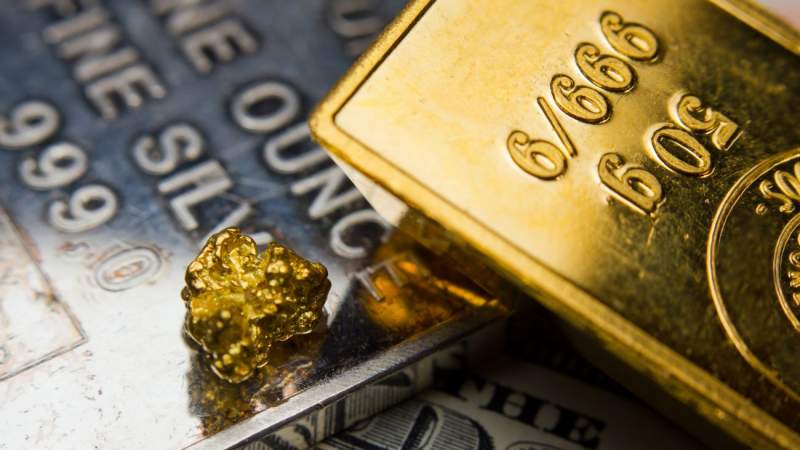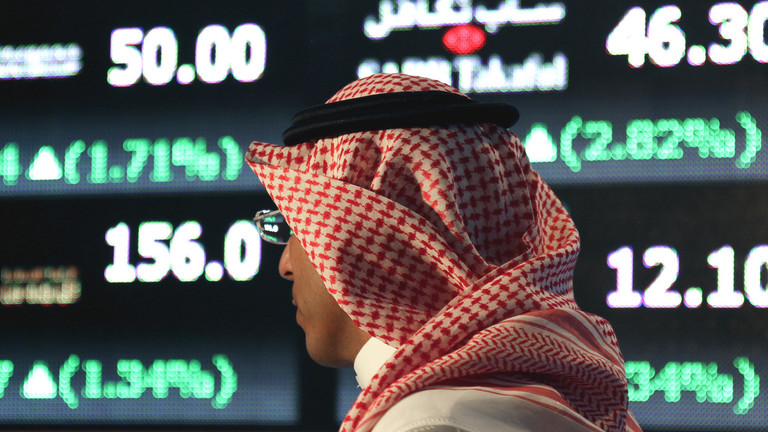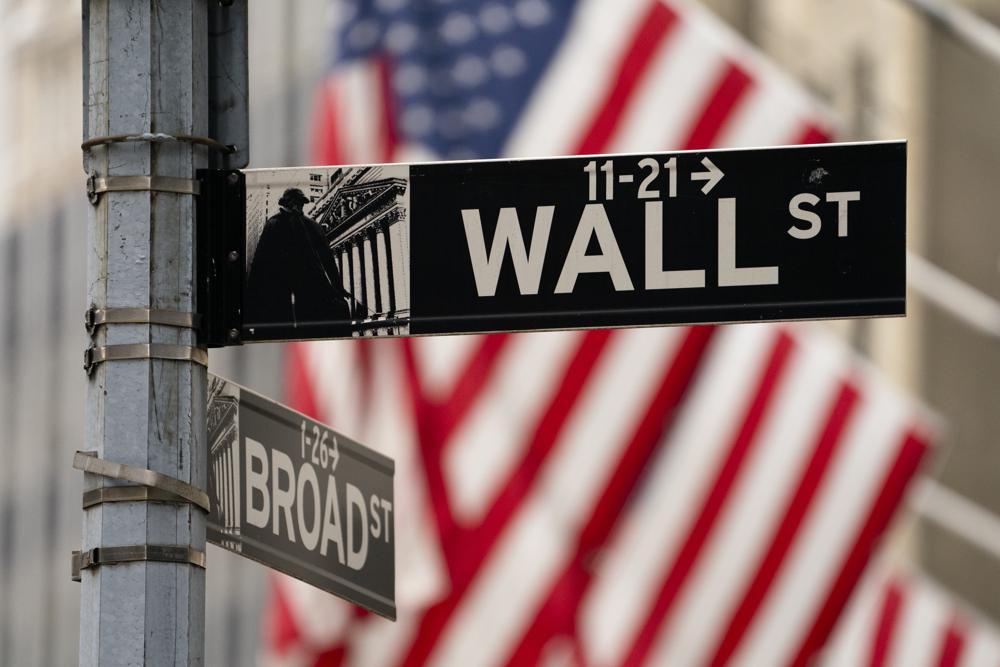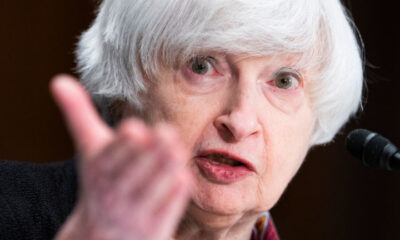INVESTMENTS
Investing in Gold and Silver
Published
4 years agoon

Throughout history, gold and silver have been constant symbols of wealth and prestige. Cultures from Asia, Europe, Africa, and the Americas have all been drawn to the luster and rarity of these precious metals for centuries. Today, gold and silver remain solid investments due to the fact that they are long-established stores of value. While many people simply love to collect and admire beautiful metals, gold and silver also offer practical advantages to investors.
Diversifying with Gold and Silver
Every financial expert stresses the importance of maintaining a diversified portfolio. During times of economic downturns, having all your eggs in one basket can be risky. Gold and silver can be excellent assets because they are considered safe havens for investments. Even during times of unrest, stock market crashes, increased inflation and economic depressions, precious metals will maintain a high value.
As with any investment, however, there are certain nuances and trends to consider before purchasing gold and silver. Potential buyers have three options: exchange-traded funds, gold/silver stocks and physical gold or silver. Each provides different short-term and long-term benefits.
The Value of Precious Metals
In order to be considered “precious,” a metal must be naturally occurring and of high economic value. While gold and silver do have some industrial uses, they are mostly prized for their beauty. The history of gold’s value dates back to 3000 B.C., when ancient cultures started using the metal to make art and jewelry. In 560 B.C., the Egyptians established gold as a form of coinage that could be traded for goods and services. Silver emerged as a major currency in the early 1000s, when the British pound represented a single pound weight of sterling. As economies evolved, central banks started using paper money that was backed by gold and silver.
The United States officially abandoned the gold standard in 1971. However, precious metals continue to play a crucial role in the global economy. Central banks and financial organizations such as the International Monetary Fund currently hold about one-fifth of the world’s above-ground gold. Precious metals are coveted because they can preserve wealth even when other currencies are manipulated. Enthusiasts often point to the fact that gold has never once failed in its use as currency.
Gold and Silver Prices
As far as precious metals go, gold is by far the most popular investment. Gold has long enjoyed more historic appeal and price stability. Even though there is much less above-ground silver available for investors, demand has made gold more valuable. Since silver is cheaper, it is often seen as an excellent gateway into hard assets for new investors.
The current price of gold is about 75 times that of silver. This indicator, known as the gold-silver ratio, is an important metric used to determine the value of each metal. Potential investors should also consider the spot price and future value of gold and silver. If you were to buy a precious metal today, that cost would be its spot price.
It’s important to note that a physical sale of gold or silver will also include a markup. For example, a retailer will include a markup on a gold ring to make a profit. Your goal as a buyer is to keep that markup to a minimum so that the future value of the gold will turn into a profitable investment.
How and Why Prices Change
Since precious metals provide no rent, yield or coupon, they are often difficult for investors to value. As of June 2017, the price of gold is $1,270 per ounce, and the price of silver is $17 per ounce. Throughout a trading day, those prices will fluctuate based on demand and other market factors.
While the operations of mining companies are important, the value of a precious metal is mostly determined by the actions of buyers and sellers. Investors hang on to gold and silver to protect their global purchasing power and diversify their portfolios. Investors tend to sell gold and silver when interest rates rise or if the value of the dollar increases. Furthermore, certain world events tend to induce a spike in value. Gold values rose after the 2008 recession and the Brexit announcement in 2016. Over the past three decades, gold prices have gone up by about 300 percent.
Keeping on Top of Trends
As with any investment strategy, it’s important to keep an eye on how buyers and sellers are behaving. In recent years, the gold-silver ratio has been high. Lower silver prices have led to a surge in coin fabrication. This has made the silver coin market quite strong among many collectors. However, such trends could be out of date within a year. If the dollar weakens or interest rates decrease, a bull market may ensue for precious metals. That’s why it’s important for investors to stay on top of emerging developments in the world economy.
Experienced traders interested in long-term gold and silver investments may want to take advantage of futures contracts. Investors who follow market patterns can use futures to get exposure to gold or silver while only paying part of the total cost of a contract. Generally used by hedgers and speculators, futures contracts involve agreements to purchase assets at a certain date. Since futures don’t have fixed prices, contract values fluctuate as gold and silver prices change.
Gold and Silver Investment Companies
If you’re looking to make serious purchases of gold or silver, you’ll be dealing with bullion, or bulk quantities of precious metals. While personally holding and storing precious metals is a possibility for some, obtaining gold and silver through exchange-traded funds is the better option for many. For example, precious metals IRAs provide an excellent way to hedge against inflation and economic uncertainty. Such acquisitions will involve collaborating with investment companies.
Whether you’re a first-time investor or experienced trader, it’s important to exercise due diligence when choosing an investment firm. A reputable company will have a solid reputation for delivering results even when the market is volatile. The best companies will be accredited by market watchdogs, charge reasonable fees and have a dedicated client service staff.
In addition to providing clients with investment guidance, these firms will be storing the precious metals. It may seem obvious, but storage security is a vital component to any quality investment company. A good firm will also have a fair buyback program. This will be necessary when you want to sell or take advantage of the liquidity of your gold or silver investment.
INVESTMENTS
Saudi bank chief resigns after Credit Suisse comment
Published
1 year agoon
March 27, 2023
Shares of the Swiss bank tumbled after Ammar Al Khudairy warned of a funding cut-off
The chairman of Saudi Arabia’s largest lender, the Saudi National Bank (SNB), Ammar Al Khudairy, has resigned his position, the bank announced on Monday. The resignation, officially “due to personal reasons,” came mere days after his comments triggered a share price collapse of Switzerland’s second-largest bank, Credit Suisse.
When asked in an interview with Bloomberg TV whether the SNB would be open to providing additional capital to Credit Suisse, Al Khudairy responded, “The answer is absolutely not, for many reasons outside the simplest reason which is regulatory and statutory.”
Earlier this month, the SNB rejected a plea from Credit Suisse to provide more funding because, according to the lender, owning more than a 10% stake in the Swiss bank would have caused a “regulatory issue” with the Saudi government.
The banker’s comments sent shares of Credit Suisse plummeting to their lowest level on record. They also caused more turmoil in a global banking sector still reeling from the recent failures of three US lenders. Credit Suisse narrowly avoided insolvency itself, saved by a government-brokered rescue acquisition by rival UBS.
While Al Khudairy’s statement was not the only source of Credit Suisse’s troubles – the bank has been plagued by deposit outflows since last year surrounding a series of scandals and regulatory issues – it exacerbated the crisis of confidence in the bank, analysts say.
SNB, which is 37% owned by the Saudi sovereign wealth fund, has suffered significant losses on its investment in Credit Suisse, which has plunged by about $1 billion in a matter of months. The Saudi bank has itself lost more than $26 billion in market value since the start of the turmoil.
For more stories on economy & finance visit TSFT’s business section
PLEASANT MUSIC FOR YOUR CAFE, BAR, RESTAURANT, SWEET SHOP, HOME
SUITABLE MUSIC FOR YOGA LOVERS
INVESTMENTS
Wall Street up in premarket after Dow slips into bear market
Published
2 years agoon
September 27, 2022
NEW YORK (AP) — U.S. futures jumped Tuesday morning one day after a selloff on Wall Street put the Dow Jones Industrial Average into what’s known as a bear market.
Futures for the Dow Jones Industrial Average climbed 1.2% and futures for the S&P 500 were up 1.4%. The S&P 500 slid into bear market territory in June.
The end of the third quarter is approaching and with the next round of earnings reports, investors will get a better sense of how companies are dealing with persistent inflation.
Several economic reports are on tap for this week that will give more details on consumer spending, the jobs market and the broader health of the U.S. economy.
The latest consumer confidence report, for September, from the business group The Conference Board will be released on Tuesday. The government will release its weekly report on unemployment benefits on Thursday, along with an updated report on second-quarter gross domestic product.
On Friday, the government will release another report on personal income and spending that will help provide more details on where and how inflation is hurting consumer spending.
Seeking to make borrowing more expensive and crimp spending, the Fed raised its benchmark rate, which affects many consumer and business loans, again last week. It now sits at a range of 3% to 3.25%. It was near zero at the start of the year. The Fed also released a forecast suggesting its benchmark rate could be 4.4% by the year’s end, a full point higher than envisioned in June.
The U.S. economy is already slowing, raising worries that rate hikes might cause a recession. The Dow was the last of the major U.S. stock indexes to fall into what’s known as a bear market on Monday, falling 1.1% to 29,260.81.
The Dow is now 20.5% below its all-time high set on Jan. 4. A drop of 20% or more from a recent peak is what Wall Street calls a bear market.
The S&P 500 fell 1% to 3,655.04. The Nasdaq dropped 0.6% to 10,802.92, while the Russell 2000 dropped 1.4% to close at 1,655.88.
At midday in Europe, Germany’s DAX climbed 0.5% and the CAC 40 in Paris rose 0.6%. In London, the FTSE 100 was unchanged.
In Asian trading, Tokyo’s Nikkei 225 index picked up 0.5% to 26,571.87 and the S&P/ASX 200 added 0.4% to 6,496.20. In Seoul, the Kospi rebounded from earlier losses, edging 0.1% higher to 2,223.86.
Hong Kong’s Hang Seng added just 5 points, to 17,860.31. The Shanghai Composite index jumped 1.4% to 3,093.86 after China’s central bank on Tuesday moved to maintain cash flow for banks by buying securities from commercial lenders, with an agreement to sell them back in the future.
The official Xinhua News Agency said the People’s Bank of China carried out 175 billion yuan (about $24.7 billion) in reverse repos “to maintain liquidity in the banking system.”
Global stocks have been sagging under concerns over stubbornly hot inflation and the risk that central banks could trigger recessions as they try to cool high prices for everything from food to clothing.
Investors have been particularly focusing on the Federal Reserve and its aggressive interest rate hikes. But volatility in currency markets has further roiled markets.
The British pound dropped to an all-time low against the dollar on Monday and investors continued to dump British government bonds in displeasure over a sweeping tax cut plan announced in London last week. It had stabilized by early Tuesday.
The Japanese yen edged toward 145 to the dollar early Tuesday. Last week, the Bank of Japan intervened in the market as the yen slipped past 145, gaining a brief reprieve. But the dollar’s surge against other currencies is putting pressure on the BOJ and other central banks, especially in developing economies facing growing costs for repaying foreign loans.
On Tuesday, the pound was at $1.0810, up from $1.0686 late Monday. The dollar bought 144.35 yen, down from 144.65 yen, and the euro rose to 96.35 cents from 96.10 cents.
In other trading on Tuesday, U.S. benchmark crude added 90 cents to $77.61 per barrel in electronic trading on the New York Mercantile Exchange. It sank $2.03 to $76.71 on Monday.
Brent crude, used for pricing international oils, rose 97 cents to $83.83 per barrel.
INVESTMENTS
Zuckerberg loses OVER $6 BILLION as Facebook-empire outage drags into HOURS
Published
3 years agoon
October 5, 2021
Mark Zuckerberg is facing some major financial consequences, according to Forbes, losing billions of dollars, as well as his No.5-richest man rank as users continue to be shut out of Facebook, Messenger, Instagram, and WhatsApp.
After mass complaints about the various platforms in the Facebook family being down, and users getting error messages when trying to log on, the company said it was working to resolve the issue.
With all four now off-air for several hours, Zuckerberg has faced a pile-on on rival social media platforms, and habitual Facebook users have taken to other apps that aren’t experiencing issues, such as Twitter and Telegram, to express their dissatisfaction. Many have even temporarily celebrated the absence of Facebook.
Facebook and Instagram go mysteriously offline and, for one shining day, the world becomes a healthier place. #facebookdown
— Edward Snowden (@Snowden) October 4, 2021
Zuckerberg has lost billions as a result of the outage, according to real-time tracking by Forbes. Its list of “today’s winners and losers” tracks from the close of business the previous day, meaning the CEO’s massive losses have clearly occurred since users began experiencing technical issues.
Other leaders in Big Tech have also seen recent losses, according to the data, with Amazon’s Jeff Bezos and Microsoft’s Bill Gates both losing billions, too, though those losses are still comparatively minor in the shadow of Zuckerberg’s $6.7 billion hit, as of the time of writing. The loss has put Zuckerberg at sixth on Forbes’ list of the world’s top billionaires, with Elon Musk at the zenith.

Facebook, WhatsApp & Instagram ALL down in major worldwide outage
Facebook stock has dropped multiple percentage points in the wake of not only the aforementioned technical difficulties, but also a ‘60 Minutes’ interview with a whistleblower from the company that aired on Sunday night.
Data scientist Frances Haugen came forward as the source of a recent report claiming the company had been aware of the negative effects its services could have on users, and its censorship ‘measures’ had been used to increase only its profits, rather than to fight misinformation, as it had claimed.
Haugen will appear before Congress this week for a hearing titled ‘Protecting Kids Online,’ which will focus on the alleged negative effects of Facebook’s algorithms on youths.

‘Betrayal of democracy’? Whistleblower blasts Facebook for prioritizing profits over fighting ‘hate speech & misinformation’
If you like this story, share it with a friend!



Global debt balloons to record highs

German military to sell tons of toilet paper

First female Saudi astronaut heads to space

Nigeria takes step to combat fuel shortages

US will default if debt deal fails – treasury secretary

Village People demand Trump stop using their music

Hollywood star pulls out of hosting awards show amid strike

Rock icon slams German authorities

Agatha Christie novels chopped by ‘sensitivity readers’ – media

Marvel star back in training after breaking over 30 bones

Turkish minister escapes fire blast (VIDEO)

Trump savages pop star’s Super Bowl performance

Alec Baldwin sued by Ukrainian family of slain cinematographer

Duran Duran stumbles, Dolly Parton rolls into Rock Hall

Sweden probes possible plot behind Russian pipeline leaks

FINANCE


Global debt balloons to record highs
It’s now $45 trillion higher than its pre-pandemic level and is expected to continue growing rapidly, a top trade body...


Nigeria takes step to combat fuel shortages
The West African country has built a giant oil refinery to cover domestic demand Nigeria will commission its new Dangote...


US will default if debt deal fails – treasury secretary
The current borrowing limit is a constraint on Washington’s ability to meet its obligations, Janet Yellen insists America’s chances of...


Facebook parent Meta fined €1.2 billion by Irish watchdog
The American tech company has been accused of violating EU data privacy rules US tech giant Meta has been hit...


UK’s business with sanctioned country booming
Trade between Britain and Iran has reached the highest level in a decade, according to official data, apparently having been...

POLITICS


Erdogan election defeat would be ‘revenge’ – Syrian Kurds
The YPG claims the Turkish president failing to win another term would be payback for Ankara’s counter-terrorism operations in Syria...


Chinese special envoy meets with Zelensky
Li Hui visited Kiev to share Beijing’s views on a political settlement to the Ukraine crisis Ukrainian President Vladimir Zelensky...


Pakistan’s top court orders release of former PM Imran Khan
Pakistan’s Supreme Court has ordered the release of former prime minister Imran Khan, whose arrest earlier this week triggered deadly...


Kamala Harris to run AI taskforce
The US vice president will ask AI execs to evaluate the safety and fairness of their models US Vice President...


Most Americans want to move on from Biden and Trump – poll
70% of respondents said the incumbent shouldn’t bid for office in 2024, with that figure 60% for the Republican former...

OPINION


Disgraced ex-PM Liz Truss seeks to ruin any hopes for normal UK-China ties
The former premier’s Taiwan trip is nothing but a provocation for Beijing to lash out at London, sinking any constructive...


India facing challenge to steer SCO agenda away from Western-dominated frameworks
The Shanghai Cooperation Organisation is looking at ways to address the most pressing global issues without being a disruptive influence...


China isn’t the biggest threat to Italy’s prosperity
Rome is considering leaving the Belt and Road Initiative in a move which will place virtue signaling to other Western...


Meet the Czech lawyer who rallies thousands to shake up the EU establishment
In mid-April, a fledgling political party that recently formed in the Czech Republic called Pravo Respekt Odbornost (Law Respect Expertise;...


UK shows signs of good will to China, but it’s not the one calling the shots in this relationship
The British foreign secretary says antagonizing Beijing goes against London’s ‘national interests’, but Washington has other ideas British Foreign Secretary...

LIFE


conic Smiths bassist dies aged 59
The bassist with legendary English rock band The Smiths, Andy Rourke, has died at the age of 59, the group’s...


Village People demand Trump stop using their music
A viral video emerged last week of Donald Trump dancing to a Village People song at his Florida estate Village...


Hollywood star pulls out of hosting awards show amid strike
Drew Barrymore is stepping down as host of this year’s MTV Movie & Music Awards, due to be held on...


Mexico condemns US ‘interference’ in drug war
The DEA’s infiltration of the Sinaloa Cartel without state permission amounts to espionage, the Mexican president says Mexican President Andres...


Rock icon slams German authorities
Pink Floyd co-founder Roger Waters criticized the city of Frankfurt for canceling his concert and vowed to take legal action...



Trending
-

 TECHNOLOGY12 months ago
TECHNOLOGY12 months agoHow much YouTube pays for 1 million views, according to creators
-

 FINANCE11 months ago
FINANCE11 months agoFacebook parent Meta fined €1.2 billion by Irish watchdog
-

 LIFE12 months ago
LIFE12 months agoHollywood star pulls out of hosting awards show amid strike
-

 LIFE11 months ago
LIFE11 months agoconic Smiths bassist dies aged 59
-

 NEWS11 months ago
NEWS11 months agoKenya supports creation of pan-African court
-

 FINANCE11 months ago
FINANCE11 months agoUS will default if debt deal fails – treasury secretary
-

 FINANCE11 months ago
FINANCE11 months agoGlobal debt balloons to record highs
-

 WAR11 months ago
WAR11 months agoUkraine won’t join NATO anytime soon – Scholz




